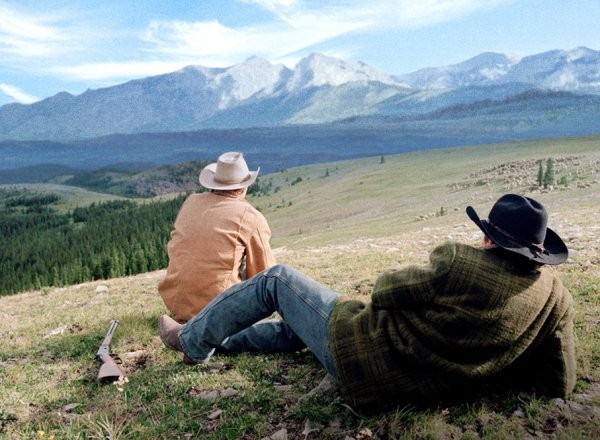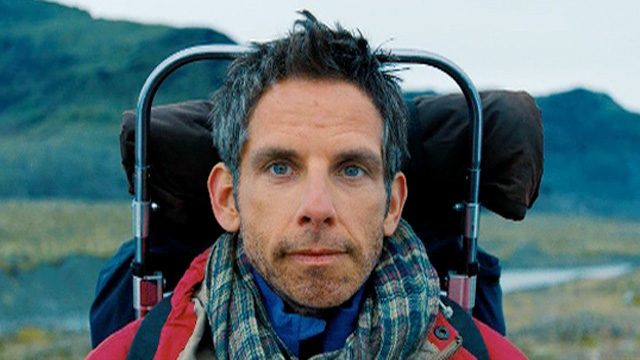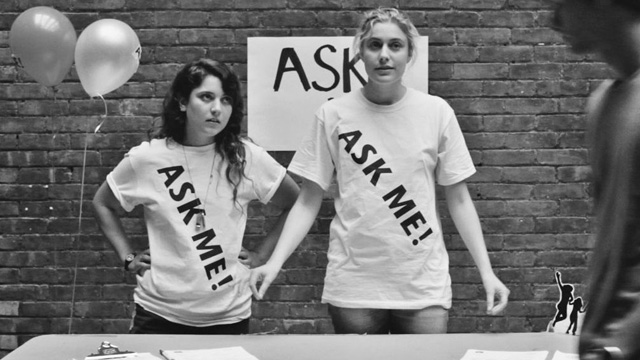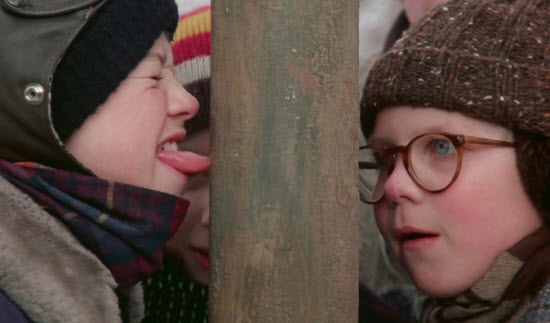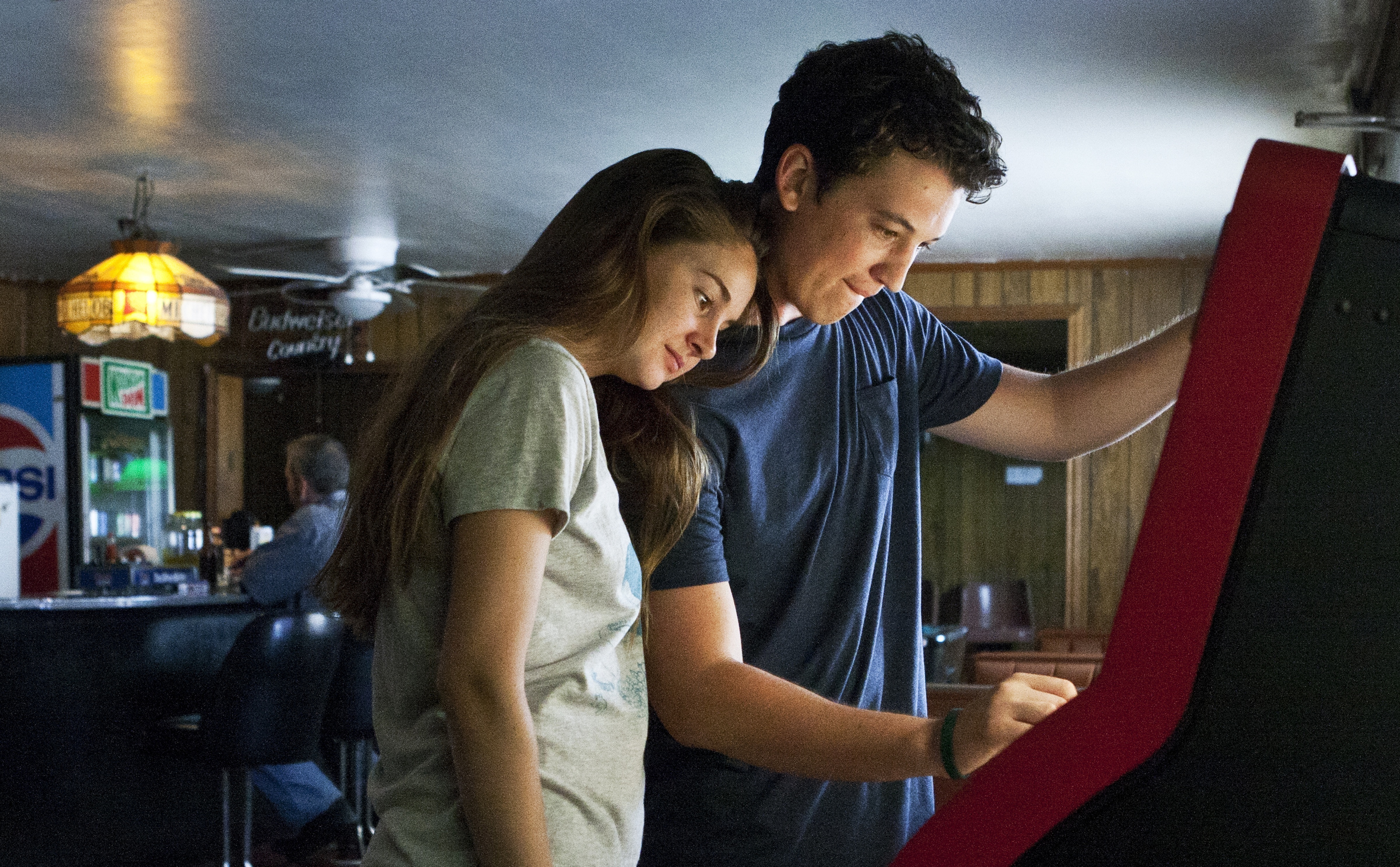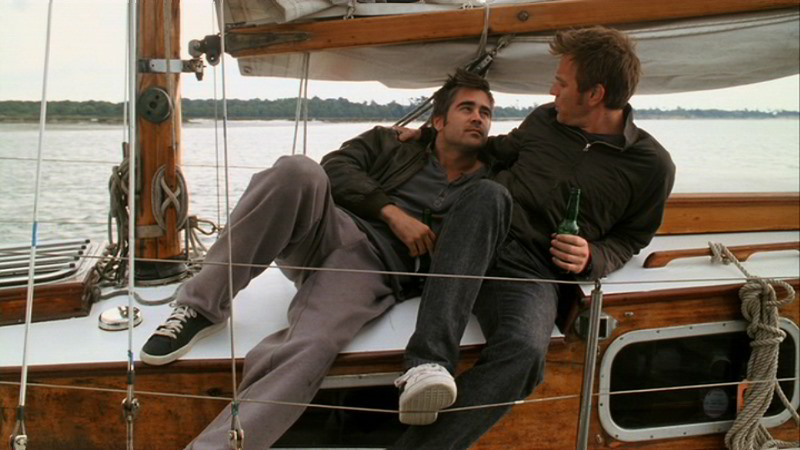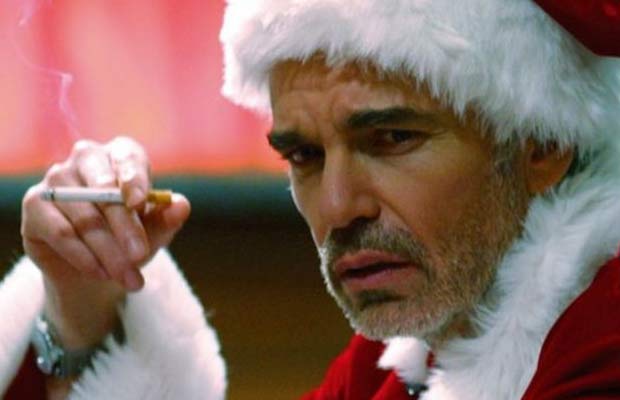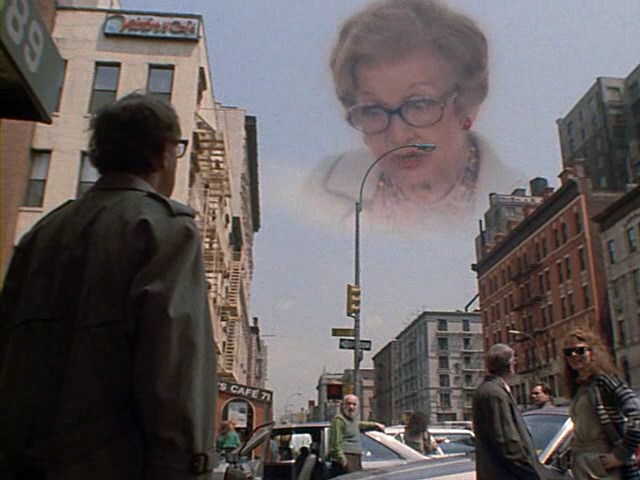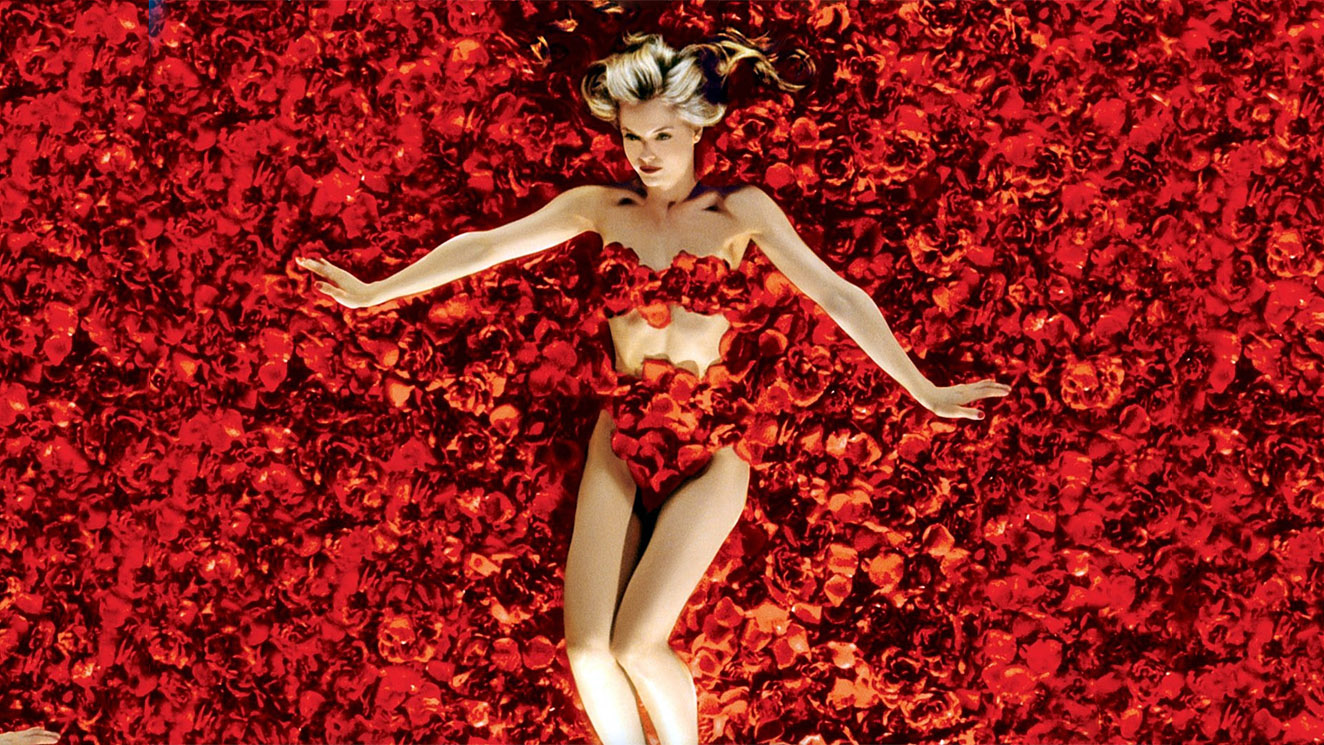What Teachers Make - Taylor Mali
Stand-up comedians often fabricate certain aspects of their lives for the sake of a good joke. "I was walking down the street the other day..." Were you? Or were you sitting on your couch thinking of jokes for your next set? I don't mind if comedians lie; what matters is that they make me laugh. In the case of spoken word poets, and especially in this instance with Mr. Mali, you get the sense that nothing is a sham. You can feel the legitimacy reverberating from the words. You see the truth in the poet's gestures and facial expressions. Taylor Mali spent nine years as a teacher of English, history, and mathematics. He now lectures and holds workshops for teachers and students the world over. Indeed, his experience as a teacher informs many of his poems. He has even written and performed a poem about something as insignificant as girls lending pens. He is clearly a man who is passionate about his vocation, as evidenced through this electrifying poem on teaching to make a difference, not a wage.
That Love - Simone Stolzoff
In Woody Allen's Vicky Cristina Barcelona, there's a scene where Scarlett Johansson's character laments that she is not gifted. She can appreciate art and music, but she doesn't have the talent to create her own. Hence, she must live with so much repressed emotion. Stolzoff's poem is written from a very similar perspective. Here is a young man with a romantic, sensitive soul. All he needs is a girl who will let him love her. Can you really write a love poem if you've never been in love? He needs to find someone who will validate his sweet words. It is frustrating to watch people take love for granted; to see people whinge about their partner's flaws instead of embracing their positive traits. There have been countless times where I've been speaking to someone and they have cautioned me, "Steven, never get a girlfriend!" or "Don't you ever get married!" In these situations, I must resist the urge to tell that person to break up with their partner if relationships really do suck that much. Also noteworthy is the subtle humour Stolzoff injects into the poem, such as the stony facial expression and deliberate pause when he compares finding love to finding a five dollar bill resurfacing from folds of denim.
This is Not the End of the World - Neil Hilborn
This is one of my go-to videos on days when I feel like utter shit. Sometimes, it's just so hard to believe that you make a difference to people in this life. You only consider this on your birthday when everyone's standing around a cake, singing Happy Birthday to You. The other 364 days can be a real drag. This poem is a big "fuck you" to the negative feelings within the gamut of human emotion. Hilborn suffers from bipolar disorder, so this poem is understandably close to his heart. He espouses that, to persevere against bipolar and other mental illnesses, one must always be busy, or at least optimistic. Wallowing in self-pity only digs a deeper, more disastrous hole. My favourite line: "Whatever you're feeling right now, there is a mathematical certainty that someone else is feeling that exact thing." If this poem isn't enough to make someone step down from that ledge, I don't know what is.
Social Anxiety at 130 BPM - Aaron Burstein
This didn't really appeal to me on my first listen, but it really grew on me over time. Now, I have not been diagnosed with any anxiety disorder, but then again, I've never gone to get tested. All I know is that I can get very, very uncomfortable in social situations where everyone is a stranger. I can't go to parties if I don't know at least one other guest besides the host. As an introvert, loud environments unnerve me. I'm at the train station when I see someone I went to school with. I want to avoid this person, not because I hate him, but because we never spoke that much and small talk is my weakness. Burstein nails the experience of entering a crowded room when you are not gifted with social skills. The whole "expectations vs. reality" dilemma is spot on. "They're just people," you think. "This will be easy." But then you walk in that room and the inane chatter is too grating to bear. With one foot in the door, you already want a change of scenery. I also like how Burstein portrays the fluctuation of thoughts throughout one interaction, giving his poem a stream-of-consciousness flavour. Most importantly, he reminds us that it's okay to fake it 'til you make it. Be The Iceman.
Liars, All of Us - Chad Anderson
Earlier in this post, I differentiated between stand-up comedians and slam poets. I said that poets don't lie the way comedians do. This doesn't necessarily mean that poets don't glorify the nastiness of life. There is a difference between lies and concealment. One is a direct untruth. The other is the hiding of a truth. What Anderson's addressing in this meta-poem is the way poets choose to distort the truth in order to get the snaps and applause. A poem is not a photograph. As a poet, you have the opportunity to paint a rosy picture of a sordid scene. This is poetry as therapy, or poetry as distraction. You need to embed some hooks and rhymes in your poem, because if you dish out the bare truth, your audience is going to be depressed. It loses its status as art and becomes confession—the stuff you tell your psychiatrist when all that surrounds you is four walls.
Muse for a Restless Leg - Simone Stolzoff
Here's another beautiful poem from the grossly underrated Simone Stolzoff. It's probably the vaguest poem on this list in terms of subject matter, but like Anderson's poem above, it tackles the theme of writing for an audience versus writing for yourself. It's a little tough to decipher, but my interpretation is that Stolzoff wrote this poem as it allowed him to fantasise about life with a girl he loves. However, by the time he finished writing it, he realised that he would have better chances of getting the girl if he actually practised what he preached rather than sharing his desires with a room full of strangers. The line that breaks me every time is "It's awful nice to save the last bite of dessert for someone that you know is coming home." Ain't that the truth?
The Future - Neil Hilborn
The second Hilborn poem on this list is about Neil's struggles and epiphanies caused by his bipolar disorder. It's a well-written poem, but it's Hilborn's delivery that takes it to a whole new level. His genius is that he can trivialise his own illness without insulting other bipolar sufferers. When Hilborn talks about the symptoms of bipolar, he doesn't speak for everyone. He individualises the illness so well that he can talk about suicidal thoughts with an animated timbre to his voice. By the time he conjures up the portmanteau blowmotion, we have fallen in love with him. Here is a man who wants to make people smile, even when he is sharing the lowest points of his life. I love the homely image of the future as "a small town we're all gonna move to someday." I think Neil Hilborn deserves to be the mayor of that town.
Rubik's Cube - Benjamin Barker
I'm amazed that Barker was able to remain composed during this performance. I still remember the night I lost my last remaining grandparent: September 27, 2004. I bawled my eyes out. The trouble with grandparents is that, when we're children, we don't have a complete understanding of mortality. We know what "old people" look like, and we have some understanding of death, but we don't expect our grandparents to die because they are such a strong presence in our lives. Yes, we know about death, but we don't know how it claims people without warning. What's the difference between cancer and a stroke? The juvenile mind does not know, nor does it want to know. Barker demonstrates his knack for storytelling in this performance, so much so that I almost felt like I had lived his history. The metaphor of a Rubik's cube for a mind ravaged by Alzheimer's works wonderfully, just like Barker's hand gestures. When he describes the vivid colours of World War II, I think of the blissful brutality of The Thin Red Line. This is a thoroughly moving work which deserves more recognition.
Pine City - Renee Schminkey
For a poem that comes from such a personal place, Pine City is surprisingly accessible. We sense Schminkey's genuine pain over growing up amidst a sophomore scrapheap, and the tacky media circuses and gossiping that would follow each instance. She is deadly accurate in capturing the hysteria that surrounds a string of deaths in a small town. I don't say this from experience, but I've read enough national and international news to recognise the outpouring of grief that sounds like it was aided by an autocue, and the way it tapers off when everyone has had their Act of Remembrance validated by another. Schminkey feels smothered by the culture of misery her town has accrued, and her gasps at the start of each sentence are signs that she's surfacing for air.
OCD - Neil Hilborn
Even if you're not too familiar with poetry slams or spoken word poems, here's one you might recognise. This is such an important poem in the context of the spoken word community. It is the most-viewed slam poem ever posted on YouTube, and for many people (including myself), it's the poem that sparked their interest in the wonderful world of spoken word. I've already touched on Neil's bipolar disorder in this post, and it just so happens that he is also afflicted by obsessive-compulsive disorder. The "tics" that Hilborn exhibits in this poem are deliberately used for dramatic effect, but otherwise, his OCD is very real. OCD is the best-delivered slam poem I have ever seen. Hilborn starts slow and progressively builds to a crescendo. The result is that we are floored by the climax. I thought my goose bumps were about to mature into fully-fledged geese. You can't fake this emotion. Neil Hilborn's OCD is slam poetry realised to its greatest potential. It is pure magic—the product of an artist, a microphone, and a room full of people hoping to see themselves in another human being.




